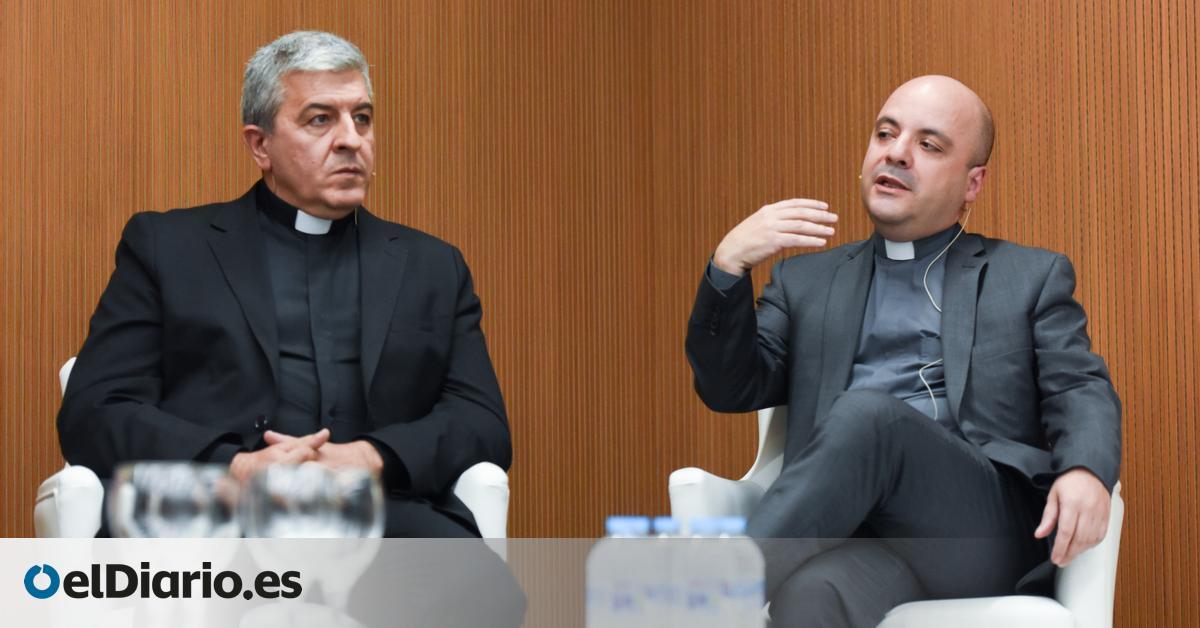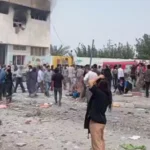
“As long as there is only one case, there will be an obligation so that it does not happen again.” The general secretary of the Episcopal Conference, César García Magán, has presented this Thursday the latest data on complaints of abuse received at the 200 offices that the Spanish Church has created in dioceses, congregations and ecclesiastical centers to try to find out the reality of the abuses. .
“You will not compensate”: the bishops approve their anti-pedophile commandments, which do not contemplate compensating the victims
Further
These official figures show a total of 927 victims and 728 abusers from the 1950s to the present, and which is much less than those indicated by the different journalistic investigations, and at least four times less than the prospections indicated by the audit commissioned by the same bishops to the Cremades&Calvo Sotelo law firm.
In fact, the first data from this investigation, which should have been presented months ago and which has been delayed, at least, until after the summer, point to a figure (necessarily conservative, as it is a party audit) of around 4,000 victims. Much less than what the Spanish ecclesiastical leadership now recognizes in its report to give light.
Of the 728 abusers, 99% are men, although among the victims there are 17.38% women and 82% men. More than half of the attackers (52%, 378) are priests, although there are some who are religious or non-ordained religious (208), and 92 laymen. There are also 23 testimonies in which the complainant did not know the ecclesial status of the aggressor, or he was a deacon.
Two out of three abusers have died, although 36.4%, more than 300, are alive. And they have not been tried. Regarding the date on which the abuses were committed, ordered by decades, the data shows that more than 80% of the cases occurred in the 20th century, and 75% before 1990. Thus, there were two cases prior to 1950; 40 in the 50’s; 137, in the 60s; 172, in the 70s; 127, in the eighties; 45 between 1990 and 2000; and 114 in this century (20 in the first decade, 60 in the second, and 34 in the last two and a half years). 91 cases of abuse are undated.
The data, the EEC clarified, does not include the figures that both the Ombudsman and the Cremades audit can offer, which the Church hopes to compare when they occur. Something difficult to foresee, given the delay of the firm, and the stoppage of parliamentary work after the early call for general elections.
The offices “have a pastoral dimension, not a judicial one”, clarifies the EEC, which insists that “they can receive all the testimonies: there is no prescription because the condition of victim does not prescribe”. “A testimony is always relevant, even if it dates back many decades, even if it refers to someone who has already died,” the bishops point out. Another thing, quite different, is the criminal prescription of the abusers. And it is that pain can never prescribe.
“The important thing is that any victim of sexual abuse committed in the Church knows that there is a place where they want to meet him”, clarify the bishops, who acknowledge “the damage caused” and ensure that “the objective is to prevent abuse can occur again and so that ecclesial spaces are safe spaces for minors in which they can grow in their knowledge, in their human qualities and in their spiritual dimension”.
Along with the presentation of the report, the spokesman for the Episcopal Conference expressed his “pain and shame” for the existence of abuse of minors in the Church. “We are an embarrassed people, but hopeful. We will not get tired of asking for forgiveness, but we will not get tired of caring for people who suffer from this scourge, anywhere, nor of providing the means so that the Church is increasingly a safe place for children and young people,” García Magán stressed in a act, organized by the EEC, in which there were victims present at the act, although among the public, without speaking. No face, no voice.
Despite everything, the bishops insist that their priorities are the victims, and reparation, although there was no talk of compensation at any time. “Members of this Church have harmed members of the Church and of society, in their vulnerability and absolute innocence. We feel pain and shame,” Magán stressed, adding that “this pain and shame will only be fruitful if they serve to make the essential changes in our way of protecting minors and removing the perpetrators from our side.” “This is ours commitment as a Catholic Church in Spain”, he concluded.
All information at www.religiondigital.org
Source: www.eldiario.es

